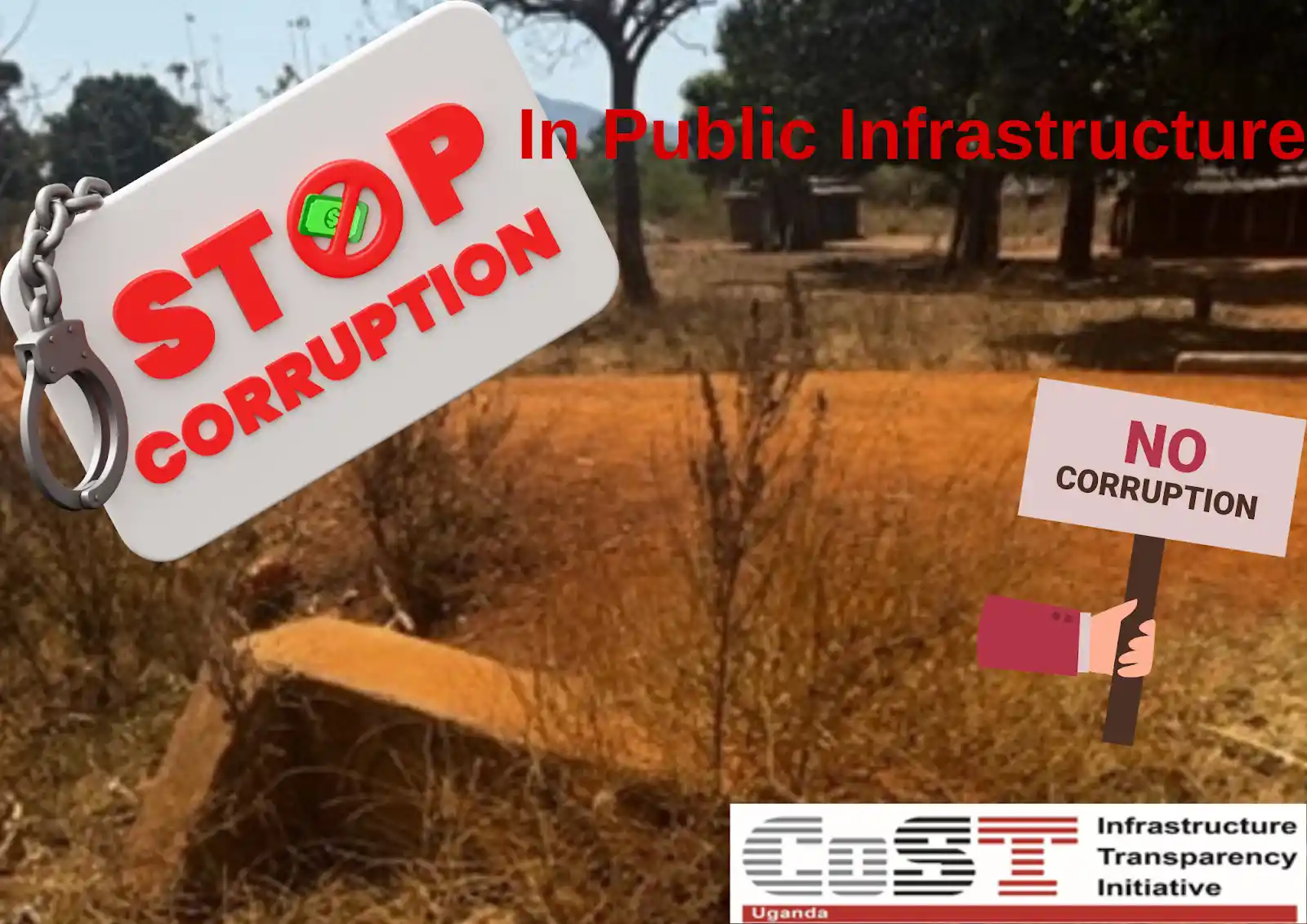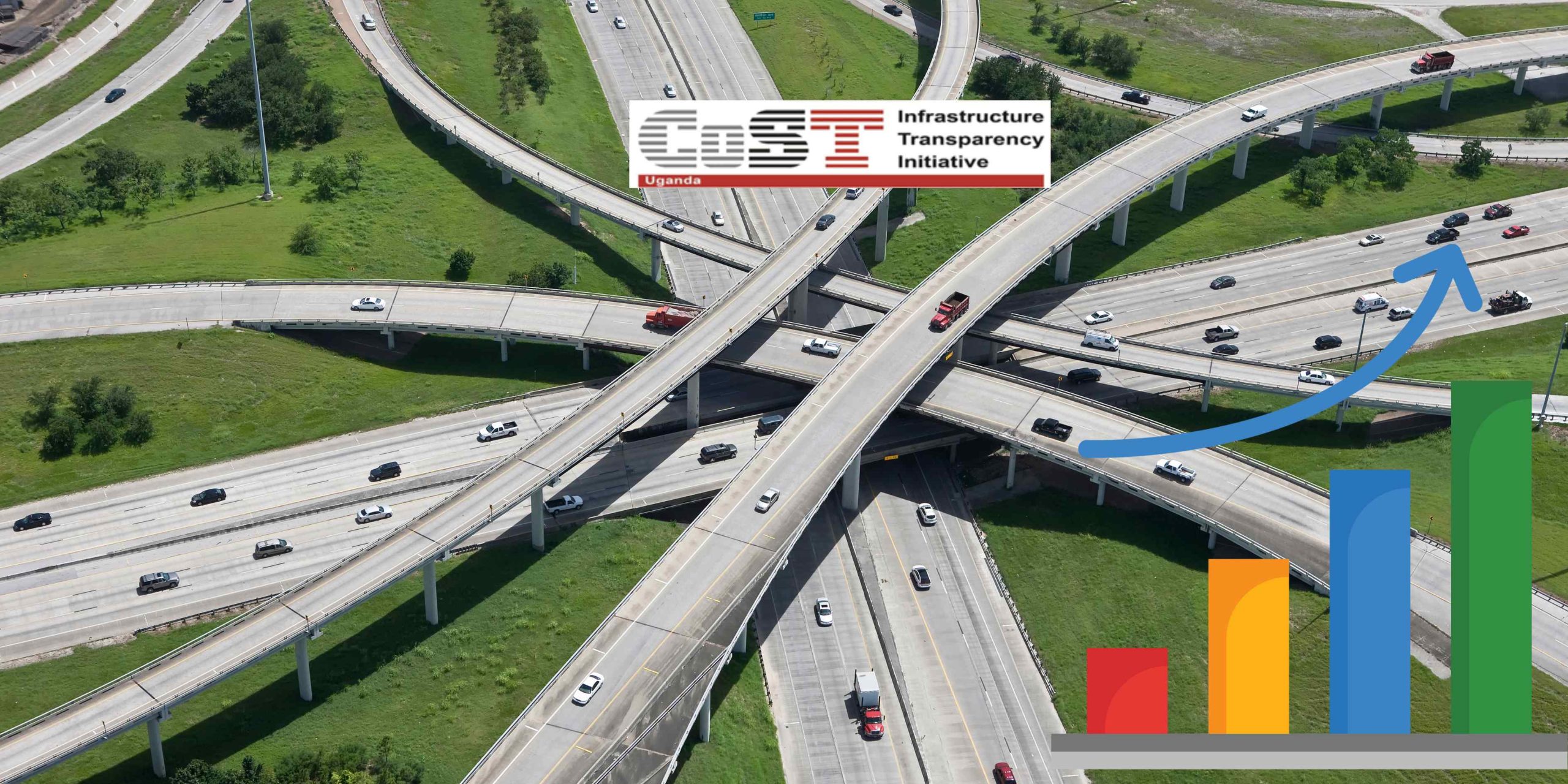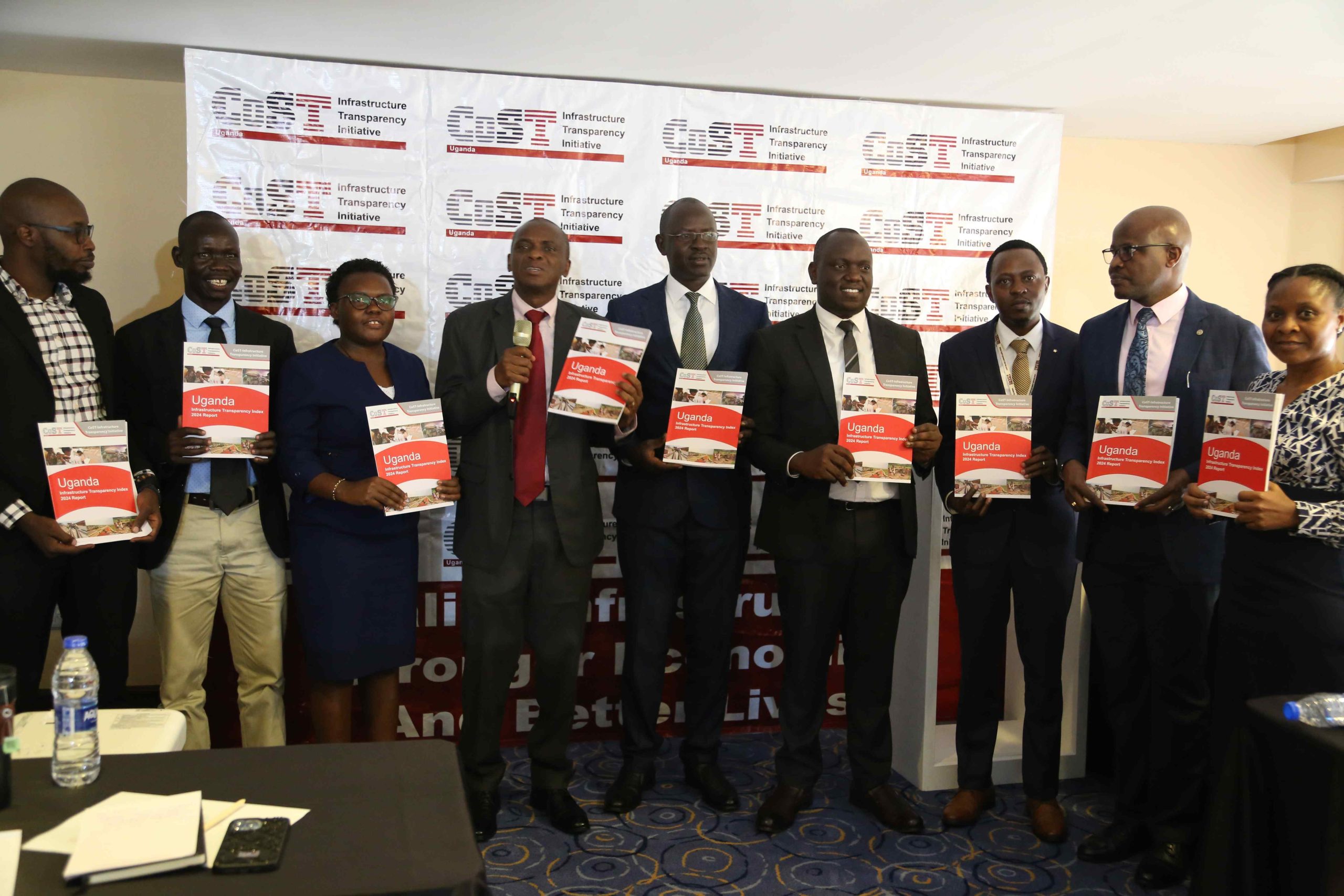
The Government of Uganda has made significant progress in infrastructure development, with key projects like road constructions and expansions, drainage restorations, express highways, walkways, the upgrade of Entebbe International Airport, and the Karuma Hydro Power projects among others. These efforts stand vital for economic growth, public service access and as well contribute to various public infrastructure needs. However, corruption continues to undermine these projects, preventing the country from reaching desired standards of infrastructure.
Globally, Uganda’s corruption index score is 26%-CPI, indicating widespread corruption in public institutions. According to the Inspector General of Government (IGG), this costs the country approximately 9.1 trillion shillings annually. The Transparency International Corruption Perceptions Index (CPI), which ranks countries based on perceived levels of public sector corruption, consistently places Uganda among the lowest, reflecting a number of systemic issues.
In public infrastructure, Corruption can be manifested from different areas ranging from tendering bidding/market concertation, Bribery during Negotiation, highly inflated contracts, hiding of construction materials, delayed projects, unfair procurement methods (direct contracting, open bidding, selective bidding, RFP). These problems persist at every stage of project planning and implementation and result onto delayed work timeline, wasted resources, poor quality work, and fund diversions.
CoST Uganda’s Approach to Stop Corruption in Infrastructure Programs
CoST Uganda (The infrastructure Transparency Initiative) employs tools, standards, stakeholder engagement, capacity building & awareness rising, and knowledge sharing to improve Transparency (disclosure of accurate, standard procurement data for improved evidence and data use) and improved social Accountability for quality/effective/efficient infrastructure projects and better lives. Through this approach, CoST has;
- Promoted real time data disclosure: conducted 2 Infrastructure Transparency Index (ITI) studies calling for real-time publication of project data. The 2nd ITI of 2024 calls for standard, accessible procurement information for all infrastructure projects.
- Supported government entities on capacity building to promote standard procurement data publication for infrastructure projects. In our recent work under the Responsible infrastructure project, we trained public officials from KCCA and journalists on using data from our modelling exercise against the new data points/variables of sustainability modules for OC4IDS. We’re to engage with PPDA to support capacity building on data publication for infrastructure projects.
- Conducted and published 6 Independent Review studies: with various recommendations that have improved infrastructure delivery. These uncovered area of learning, inefficiencies and red flags in project planning, procurement, contracts and execution, leading to corrective actions, project redesigns. This review assesses data publication practices for infrastructure projects – ensuring better project quality and strengthening public trust in government spending.
- Conducted Civic engagement: Held over 15 community barazas across the country, empowering citizens to demand accountability in local projects as well as show their contribution in public infrastructure development. During our baraza meetings this year 2025, a resident of Nwoya district donated his land for health facility construction implying a very strong impact to the communities resulting from citizen engagement. Through these, The organization advocates for procurement reforms
- In 2019, CoST Uganda, in partnership with AFIC, received the international recognition through the prestigious Anti-Corruption Excellence Award, this award represents combined efforts of Uganda as a country in combating corruption.
Key elements of CoST’s approach- Independent Review, social accountability, multi-stakeholder engagement, and disclosure are a great contribution to data use and combined stakeholder efforts. Our developed Open Contracting for Infrastructure Data Standards (OC4IDS), help standardize and improve the transparency of procurement processes for better data accuracy, compliance monitoring, and overall accountability.
While the Public Procurement and Disposal of Public Assets Authority and other bodies help to promote procurement data transparency and combat corruption through digital tools like eGP (electronic Government Procurement) and GPP (Government Procurement Portal), The procurement phases remain vulnerable to corruption, often resulting in delayed, inflated costs and substandard infrastructure. We are working with key government institutions for improved integration of transparency and accountability principles into public procurement laws and regulations.
Our Call
“We call for a stake holder comprehensive approach in strengthening legal frameworks, empowering oversight bodies, protecting whistleblowers, promoting open contracting through procurement data disclosure -fair tendering processes, and enhanced public participation in these procurement processes for strong integrity systems while lessening corruption risks in public infrastructure projects”
Our Pledge
We continue to work with key government institutions , CSO’S and private sector for integrated measures of Anti-corruption through improved Transparency and Accountability of public infrastructure projects.
CoST Uganda is chapter of the CoST International Secreteriat – a leading global non-profit Infrastructure Transparency Initiative. Stay updated through our social platforms YouTube, LinkedIn, and Twitter.
Read our latest report:
6th Independent Review Report 2025: https://www.cost.or.ug/independent-review-reports/



